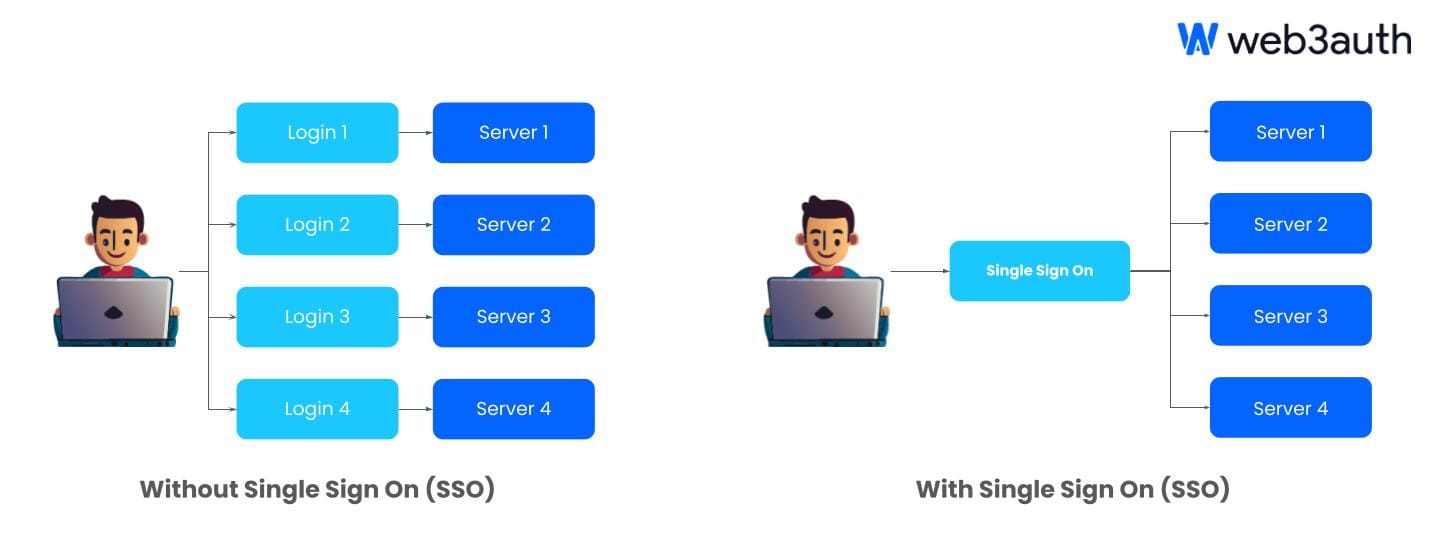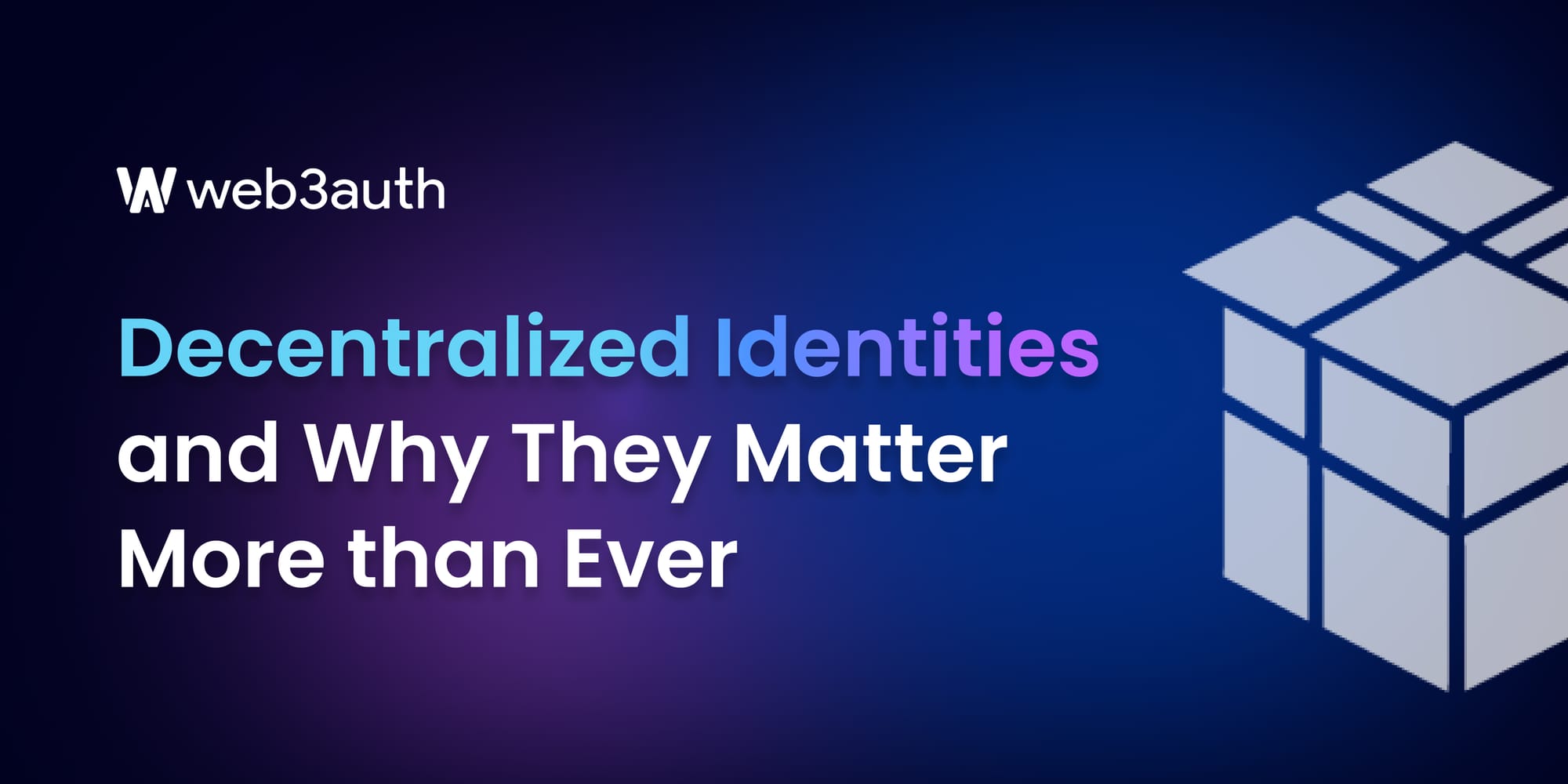On this page
In today’s increasingly digital world, we use our digital identities at work, home, and across every app and service we use. This transformation allows us to interact with hundreds of different companies and users in a way previously inconceivable.
While this has brought about convenience and connectivity, it also raises concerns about the safety and privacy of personal information.
And these challenges are not only limited to individuals.
In the recently published Trends in Securing Digital Identities Report from the Identity Defined Security Alliance (IDSA), a staggering 90% of organizations experienced at least one identity-related breach in 2023. Furthermore, 68% of the organizations that encountered such breaches suffered direct business impacts, notably the costs associated with recovery.
Challenges Posed by Centralized Identity Systems
Centralized systems often store massive amounts of information, making them ideal honeypots for hackers aiming to access valuable personal data. The 2017 Equifax data breach, for instance, compromised personal information of over 147 million people, highlighting the vulnerabilities of these systems to cyber threats.
These breaches not only put users' personal data at risk, but have the potential to damage the reputation and trust of the companies responsible.
Organizations also face difficulties in preserving user trust within centralized systems. In centralized systems, users depend on entities to secure their data. However, the potential for mistrust arises, given instances where companies have sold or misused their user’s data for profit and targeted advertising without obtaining explicit consent.
How Decentralized Identities Can Help
Decentralized identities address these challenges by providing a solution that is more secure, user-centric, and transparent.

When users are given control over their own data, the risk of data breaches is significantly reduced. As data is stored on a distributed network, there are no central points of attack for hackers to target.
This also means that individuals can choose what information they want to share to and with whom, eliminating the risk of intermediaries misusing personal information for their own benefit.
Corporations and startups can reap substantial benefits from adopting decentralized identities. By offering a more secure and transparent identity solution, they can build trust with their users and differentiate themselves from competitors.
Additionally, this often also leads to cost savings, as companies will not have to invest in costly security measures to protect centralized databases.
Traditionally, users often have to grapple with a choice: opt for ease of Single Sign-On (SSO) or create multiple accounts and passwords for different websites and services.

While traditional Single Sign-On services such as Google or Facebook offer convenience, they introduce a major drawback: a single point of failure (SPOF) in authentication.
A compromise or failure of the central SSO service could grant unauthorized access to all linked accounts and services.
On the other hand, decentralized identities systems, which utilize blockchain technology, distribute authentication across a decentralized network. This approach minimizes the impact of a single point of failure, providing a more secure and reliable authentication process while providing convenience SSO provides.
Challenges in Implementing Decentralized Identity
However, implementing decentralized identities also comes with its own set of challenges.
One of the main obstacles is the lack of awareness and understanding of the technology among the general public. Many people are still not familiar with blockchain and its potential uses, making it difficult for users to embrace decentralized identities.
With different projects using different blockchain protocols and technologies, it also becomes challenging to create a unified system that can be easily adopted by different platforms. This also poses a challenge for users, as they may need to create multiple identities to access different platforms.
To address these challenges, various projects have emerged in recent years, aiming to create a more interoperable and user-friendly decentralized identity ecosystem.
Among these projects, Mocaverse stands out as a notable example. MocaID, developed in collaboration between Animoca Brands, and Web3Auth, is a solution that effectively streamlines the transition to decentralized identity.
MocaID achieves this by leveraging interoperable AA wallets and social logins. Users can seamlessly navigate through different games within the Mocaverse Ecosystem. This creates an ecosystem where assets and experiences can be shared across apps, enhancing the value and utility of user’s digital assets.
You can find out more about Mocaverse here.
Moving Towards a Safer Digital Future
The rise of decentralized identities presents a crucial solution to the vulnerabilities inherent in centralized systems. Through empowering users with data control and leveraging blockchain, these identities offer enhanced security and transparency.
If you are looking to integrate our decentralized identity solutions, sign up here to try out our SDKs.





